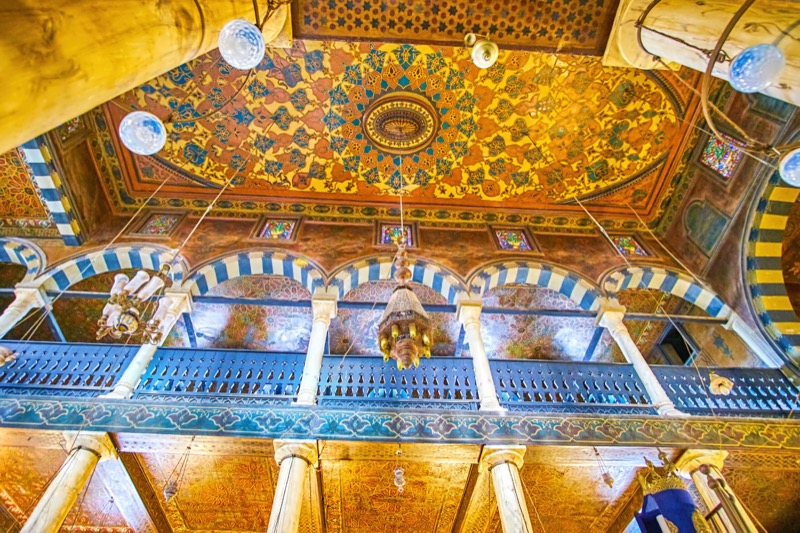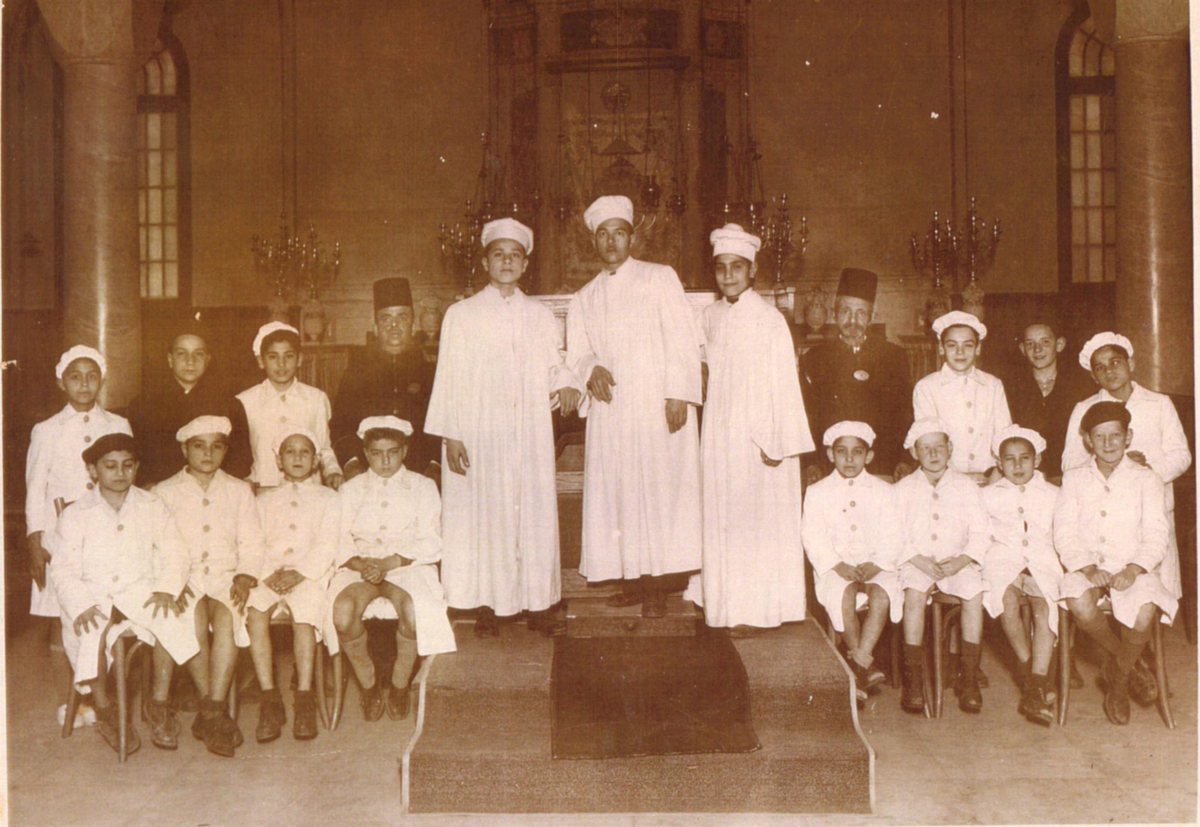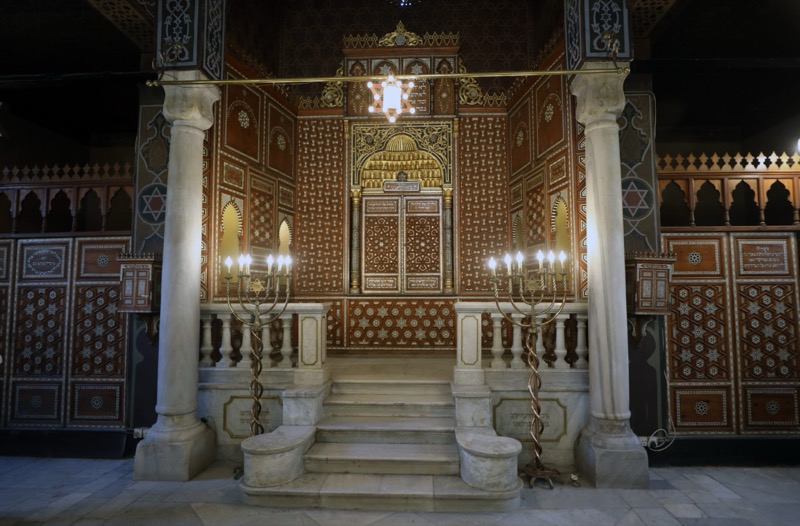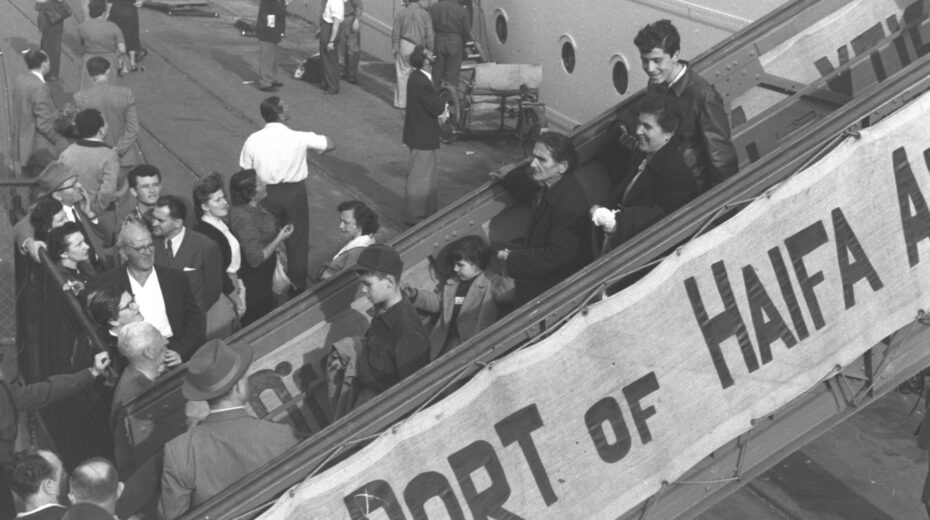As Jews around the world celebrate Passover and commemorate the Israelites’ exodus from Egypt, a new report by the organization Justice for Jews from Arab Countries (JJAC) draws attention to a second, largely ignored exodus: the 20th-century expulsion of Egyptian Jews.
In contrast to the biblical story of liberation, this modern expulsion is a chapter of disenfranchisement, dispossession, and ultimately the extinction of a thriving Jewish community. Between 1948 and 1967, over 63,000 Jews were expelled from Egypt. Today, only two Jews remain in the land of the Nile.
“Egypt played a unique role in the history of the Jewish people,” explains Sylvain Abitbol, Co-President of JJAC. The new report documents with devastating clarity the historical development, systematic persecution, and losses suffered by the Jewish community—totaling over $59 billion in property and assets (in today’s value, as of 2024).

Rise, persecution, and extinction
The Jewish presence in Egypt dates back to biblical times. Under Hellenistic, Roman, Ottoman, and British rule, Jewish life developed into a significant cultural and economic force, particularly in the 19th and 20th centuries. The Mosseri family founded banks, Joseph Smouha planned neighborhoods like Smouha City in Alexandria, and Moreno Cicurel built a department store empire. In music and theater, figures such as Dawood Hosni and Yaqub Sanu shaped Egypt’s cultural life.
But with the rise of nationalist and Islamist movements, the climate changed. The founding of the State of Israel in 1948, the Suez Crisis in 1956, and the Six-Day War in 1967 provided pretexts for systematic repression. Jews were branded as Zionists, imprisoned, disenfranchised, and forced to leave the country – often leaving behind all their possessions.
“The Egyptians told us: You are Zionists, you are our enemies. Therefore, we will take everything away from you. And they did,” reports Levana Zamir, President of the World Organization of Jews from Egypt and Vice President of JJAC.

Economic and moral damage
The report quantifies in detail the losses suffered by Jewish property owners in Egypt: land, businesses, bank deposits, personal belongings, and communal facilities such as synagogues, schools, and cemeteries. The total value of the confiscated assets today is estimated at $59.8 billion. Movable property alone is estimated at more than $366 million. “The contributions of Jews to the Egyptian economy were immense,” emphasizes Dr. Stanley Urman, Executive Director of JJAC. “They were active in all sectors – from agriculture to finance.”
President Abdel Fattah al-Sisi told US Secretary of State Antony Blinken in 2023 that Jews were “never persecuted.” This claim is in stark contradiction to eyewitness accounts, historical documents, and the findings of the JJAC report.
Rabbi Dr. Elie Abadie, co-president of JJAC, emphasizes: “Jews lived in the Middle East more than 1,500 years before Islam. The truth about their expulsion from Arab states was suppressed for 75 years.”

The UN Refugee Agency (UNHCR) also recognized in 1957 and again in 1967 that Jews fleeing Arab countries have refugee status under international law. Nevertheless, to this day, there is not a single UN resolution explicitly addressing their fate – in contrast to over 200 resolutions in favor of Palestinian refugees.
Remembrance and recognition
While Israel accepted the majority of Jewish refugees from Arab countries and granted them citizenship, most Arab states denied their own refugees integration and prospects. The histories of these two refugee groups have been fundamentally different – but the moral principle remains the same: Those who have been persecuted and dispossessed have a right to recognition and justice.
JJAC emphasizes that advocacy for the rights of Jewish refugees should not be pitted against Palestinian claims. It is about adding to a long-overdue chapter of historical truth – also in the spirit of the Abraham Accords and a possible future reconciliation in the region.

About JJAC
Justice for Jews from Arab Countries (JJAC) is an international organization based in New York that advocates for the historical investigation and legal recognition of the dispossession and expulsion of nearly one million Jews from ten Arab countries and Iran. Its goal is to preserve collective memory, document claims, and achieve long-term justice for a largely forgotten refugee group.
Want more news from Israel?
Click Here to sign up for our FREE daily email updates














